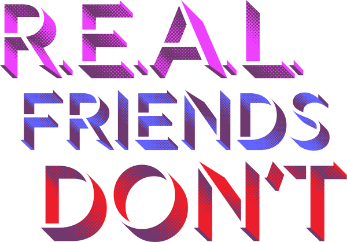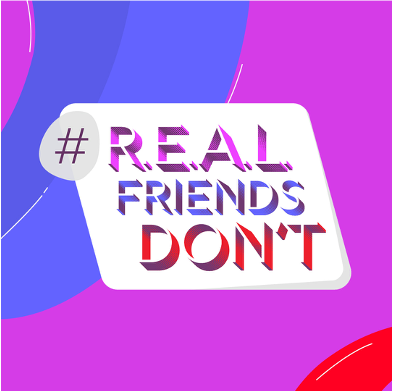McCain Institute launches online safety campaign
The McCain Institute for International Leadership is proud to reaffirm its commitment to combatting human trafficking and exploitation by launching R.E.A.L. Friends Don’t, a national media campaign to increase awareness and educate parents and caregivers about online safety.
About the project
One of the many consequences of the COVID-19 pandemic has been the sharp increase in the number of hours that school-age children spend online. Whether it’s schooling, connecting with friends, gaming or using social media, so much of our children’s world has shifted to a virtual environment. This creates new challenges for parents; namely, how to keep school-age children safe online and away from potentially dangerous content or connecting with individuals looking to exploit a young person.
R.E.A.L. Friends Don’t aims to address these challenges by providing parents and caregivers with the tools and resources they need to start the conversation with their children about staying safe online, as well as where to turn if something does go wrong.
“Parents and caregivers must understand the social media and gaming platforms that their children are using so that they are able to help set appropriate safety measures and have a meaningful conversation about online safety,” said Kristen Abrams, senior director of the McCain Institute’s Combatting Human Trafficking program. “The McCain Institute has approached this campaign in an action-oriented way, arming parents with simple steps to take to help keep kids away from those attempting to manipulate or exploit them.”
With new stay-at-home orders rolling out across the country and online learning continuing into the winter and spring, it is expected the vulnerabilities faced by many will be exacerbated. Because racial minorities are more likely to be victims of sex and/or labor trafficking, R.E.A.L. Friends Don’t is focusing its resources on reaching African American and Latinx families.
To learn more about the campaign, please visit: www.realfriendsdont.org or follow us on social media @realfriendsdont
About the Combatting Human Trafficking Program
Through innovative programs, collaborative partnerships and policy advocacy, the McCain Institute’s Combatting Human Trafficking program drives systemic change and implements comprehensive, action-based solutions to prevent and end all forms of modern slavery in the U.S. and around the world.
About the McCain Institute for International Leadership at Arizona State University
Inspired by the character-driven leadership of Senator John McCain and his family’s legacy of public service, the McCain Institute implements programs and initiatives to make a difference in people’s lives across a range of critical areas: leadership development, human rights, rule of law, national security, counterterrorism and combatting human trafficking.
Headquartered in Washington, D.C., the Institute is proudly part of ASU, the largest public university in America– ranked #1 in innovation for six years running.


